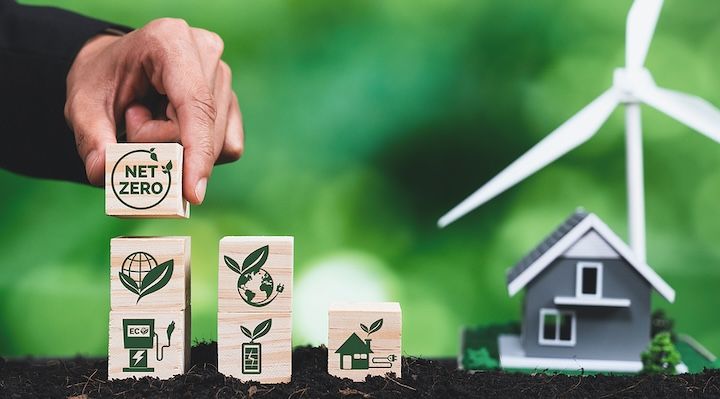Catalyzing Azerbaijan's SMEs for green economy & sustainable energy growth

In the current era of modern challenges and anticipated shifts in energy balance, the imperative to enhance the deployment of renewable and clean energy sources, and establish "green energy" pathways, stands as a pivotal global agenda item. Transitioning towards sustainable energy involves substituting conventional energy resources with reclaimed energy sources, thereby embodying the essence of "green energy".
Azerbaijan underscores its commitment to this transition as a key priority within its energy policy framework. The country's climatic conditions offer extensive opportunities for the generation of green energy, with significant roles assigned to small and medium-sized enterprises (SMEs) across various sectors of the economy. In recent years, the burgeoning development of SMEs in the green economy sector has been particularly noteworthy.
Playing a crucial role in augmenting the involvement of SMEs in the green economy, the Small and Medium Business Development Agency (SMBDA) under the Ministry of Economy has been pivotal. The agency extends support to the advancement of alternative energy initiatives in Azerbaijan aligned with national priorities up to 2030. Small and medium entrepreneurship has been earmarked as a strategic objective in the medium-term socio-economic development strategy, emphasizing its pivotal role in driving economic growth and employment within the country.
In response to Azernews's inquiry, SMBDA highlighted that applying "green technologies" not only encompasses critical elements such as environmental conservation and public health, but also holds significant relevance across various business dimensions. Adherence to these principles enables enterprises to enhance their competitive edge, expand export potential, and attract foreign investments.
Furthermore, "green SMEs" are emblematic of resource-efficient business practices. Recent data reveals that SMEs in Azerbaijan incurred approximately 360 million manats in annual fuel costs and 170 million manats in electricity expenses in 2022, reflecting a consistent upward trend compared to 2019.
" Thus, compliance with these criteria allows enterprises to enhance competitiveness, increase export potential, and particularly attract foreign investments. On the other hand, 'green SMEs' also signify resource-efficient business practices. According to the 2022 results, SMEs' annual fuel costs amounted to approximately 360 million manats, with electricity costs totaling 170 million manats. These figures show a continuous increase compared to 2019".
The agency reported that between 2019 and 2022, SMEs saw their fuel and electricity costs rise by around 45% and 40%, respectively.
"Of course, this increase can be attributed to the growing number of SMEs during that period, but overall, it underscores the importance of adopting energy and raw material-efficient technologies and practices. Therefore, implementing green mechanisms can yield significant benefits for SMEs in terms of boosting productivity, competitiveness, and profitability."
SMEs have the opportunity to drive green transformation and benefit from the 'green economy': "Traditionally, the primary focus of environmental issues was on large enterprises, known as major emitters of greenhouse gases. However, it is estimated that 80% of global emissions of these gases occur within the supply chains of large enterprises, where small enterprises often play a dominant role in providing essential services for production processes."
Interestingly, other sources indicate that 70% of global waste is generated by the SME sector: "In general, while SMEs individually may not be major carbon emitters, considering the collective emissions potential of this segment, which comprises approximately 90% of global businesses, emphasizes their significant role in achieving global green objectives."
Furthermore, "green behaviors" encompass two pivotal directions: first, reducing environmental impacts and adapting to climate change across diverse sectors such as construction, industry, manufacturing, agriculture, and energy, where SMEs play a substantial role; second, creating infrastructure resilient to natural disasters, providing business training and consultancy services, expanding forestry, and conducting research and development activities, where SMEs continue to make significant contributions.
Thus, fostering "green behaviors" among SMEs will continue to be crucial. This entails reducing environmental impacts, enhancing climate resilience across sectors, and promoting sustainable business practices. By embracing these principles, SMEs in Azerbaijan and globally can further amplify their contributions to a sustainable future, ensuring economic prosperity alongside environmental preservation.
---
Follow us on Twitter @AzerNewsAz
Here we are to serve you with news right now. It does not cost much, but worth your attention.
Choose to support open, independent, quality journalism and subscribe on a monthly basis.
By subscribing to our online newspaper, you can have full digital access to all news, analysis, and much more.
You can also follow AzerNEWS on Twitter @AzerNewsAz or Facebook @AzerNewsNewspaper
Thank you!

